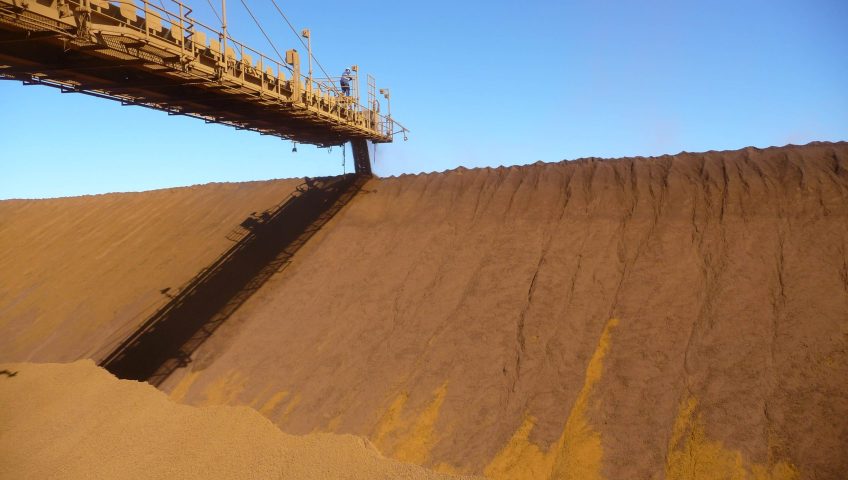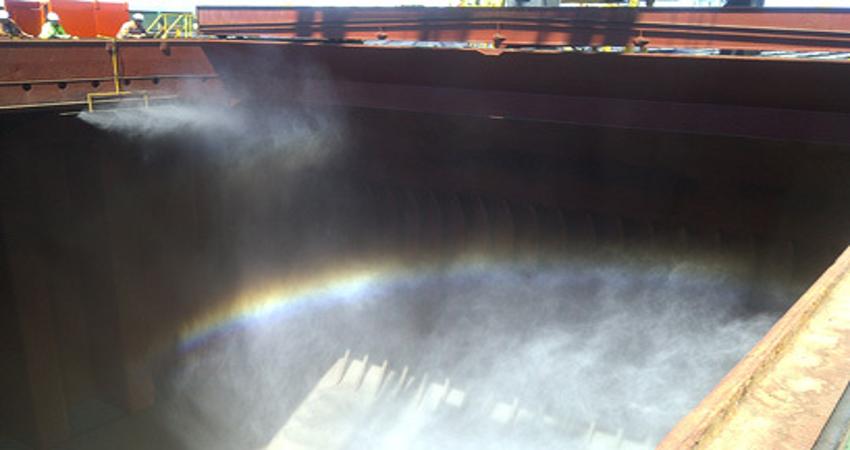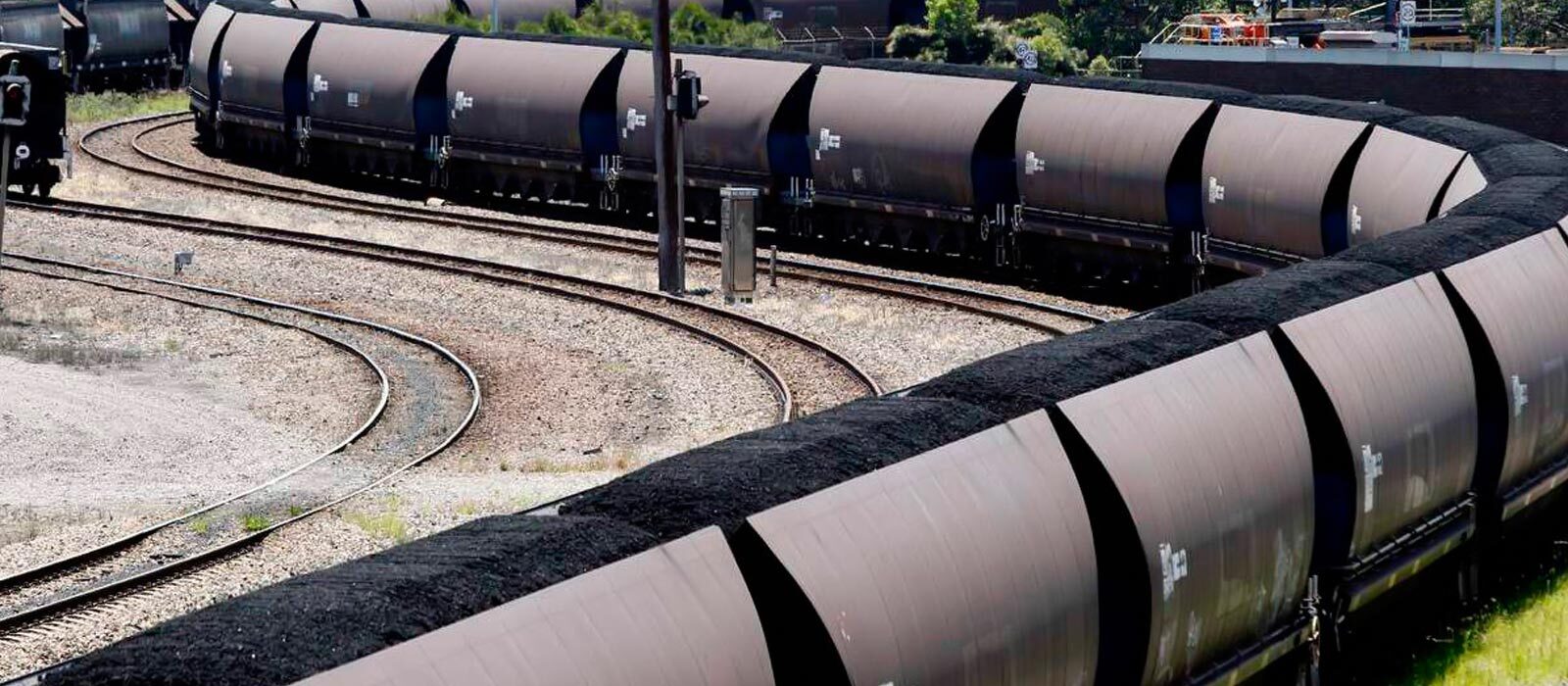Understanding the Tools: What is Bulk Materials Handling?

In sectors such as mining, construction, and agriculture, the effective management of large quantities of raw materials, including ore, grain, and minerals, is crucial for success. The process of bulk material handling, encompassing the movement, storage, and control of these materials from their extraction or production sites to their processing and distribution points, plays a pivotal role in the smooth operation of a project.
At Rainstorm, we have more than 30 years of practical experience controlling dust in the materials handling sector. Our goal is to provide you with effective dust control solutions that integrate seamlessly with your existing materials handling systems, maximising your productivity and minimising the production of fugitive dust.
This blog delves into what is bulk materials handling, highlights the importance of having the right systems in place, identifies the challenges faced by industry professionals, and presents innovative solutions to enhance operations.
What is Bulk Materials Handling?
Bulk materials handling involves the comprehensive management of large volumes of raw materials from extraction sites to buyers. Efficient systems are essential as they maintain cost-effectiveness, boost productivity, minimise downtime, and ensure the quality of materials—each aspect critical to achieving business success in these sectors.
Key Components in Materials Handling
The success of these sectors largely relies on the materials handling equipment and technologies used. To ensure maximum effectiveness and efficiency, there are a few important components to include:
- Conveyor Belts: Essential for transporting materials long distances within facilities, conveyor belts can effectively connect different parts of the production or processing areas and limit product loss.
- Elevators: These are used to lift materials vertically and are particularly important in facilities with multiple levels.
- Hoppers: Vital for efficient material collection and distribution, hoppers ensure materials flow smoothly through the system and prevent blockages.
Improving these components can greatly enhance workflow efficiency, increase productivity, and reduce maintenance costs.
Whilst Rainstorm does not provide materials handling equipment, our dust control solutions can further increase the longevity of your existing machines, and reduce your environmental impact.

Common Challenges and Innovative Solutions
Those working in bulk materials handling face several challenges that can affect both operational efficiency and environmental sustainability:
- Material Spillage: Advanced designs in conveyor belts and effective sealing systems can significantly reduce spillage. This not only saves materials but also makes cleanup processes faster and more efficient.
- Dust Particles and Hazardous Dust: Managing dust, especially from drilling and blasting, poses significant challenges. Implementing technologies like Rainstorm’s dry fog dust suppression systems and comprehensive dust control methods can effectively limit the generation of fugitive dust, keeping operations cleaner and safer.
- Energy Consumption: Employing energy-efficient motors and variable speed drives in conveyor systems can significantly cut energy usage, improving cost-effectiveness and environmental friendliness.

Navigating Regulatory Compliance
In Australia, the handling of bulk materials must comply with strict regulations focused on environmental protection and worker safety. Compliance is not only legally required but also essential to ensure the safety of all employees, especially those using potentially hazardous equipment. Regular audits, ongoing training, and standardised procedures are key to compliance.
At Rainstorm, every procedure we implement to support dust-free material handling on-site adheres to the stringent standards mandated by the Western Australian government, ensuring your operations can proceed smoothly and without extended interruption.

Sustainability at the Forefront
Now more than ever, heavy industries are adopting more environmentally friendly practices. These include:
- Implementing robust waste management and dust control systems to minimise environmental impact.
- Using renewable energy sources to power operations wherever possible.
- Selecting technologies that reduce emissions and improve material efficiency.
- Applying solutions to encourage environmental rehabilitation to used sites to help combat wind and blast erosion.
These practices not only reduce the environmental impact of industrial companies but also establish them as responsible leaders within their respective fields.
Understanding Material Characteristics
Understanding the characteristics of the materials being handled is crucial for designing effective systems. Different materials may require specific handling techniques based on properties such as abrasiveness, size, moisture content, or tendency to clump.
For example, highly abrasive materials might wear down equipment faster and might need more robust solutions, while materials prone to clumping require systems designed to prevent blockages and maintain consistent flow.
When you consult with our team at Rainstorm, after an on-site evaluation, we will create a custom-made dust control solution for you to get the most out of your project.

Choose Sustainability with Rainstorm
As industries evolve, the importance of efficient and environmentally sustainable bulk materials handling becomes ever more critical. Knowing what is bulk material handling is essential for companies aiming to ensure operational success and contribute positively to environmental stewardship.
Our team at Rainstorm offer tailored dust-suppression services that will significantly improve not only your project’s operations but also the overall health of your site. Contact our team today to learn more about how our dust control solutions for bulk materials transportation and handling can help you.













